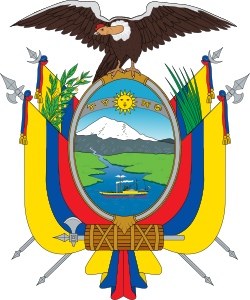| | ||||||||
| ||||||||
| ||||||||
| ||||||||
 |
|---|
Presidential elections were held in Ecuador in 1868, The result was a victory for Juan Javier Espinosa. [1] He took office on 20 January. [2]
| | ||||||||
| ||||||||
| ||||||||
| ||||||||
 |
|---|
Presidential elections were held in Ecuador in 1868, The result was a victory for Juan Javier Espinosa. [1] He took office on 20 January. [2]